FORUM Sexualaufklärung und Familienplanung, Heft 2-2010: Youth Sexuality national/international, english version
Inhalt
This latest edition of FORUM describes current international research resultsrelating to youth sexuality from Germany, Switzerland, France and the UnitedKingdom.
At the beginning of September, the German Federal Centre for HealthEducation (Bundeszentrale für gesundheitliche Aufklärung - BZgA) publishednew data on youth sexuality in Germany in 2010. The results reported in the first article in this issue focus on migration: statements made by young peoplefrom a migration background on their attitudes and behaviour related to sexualityeducation, sexuality and contraception were evaluated separately and can thus be compared with the data from the main cohort - with interesting results.
The second article deals with condom use in 16-20-year-old young people inGermany, as revealed by the study “Public Awareness of AIDS”. The results of the study indicate that condoms are very widely accepted and are used both for protection against unwanted pregnancy and also for the prevention ofsexually transmitted infections (STI). International experts consider whether, inview of high infection rates among young people in some parts of Europe, moreemphasis should be placed on the use of condoms in STI prevention.
How can prevention messages reach young people from a migration back -ground more effectively? This is a question of constant concern to BZgA - since around one third of all young people in Germany come into this group - and has now been addressed in a representative study. A new feature of thisdiagnostic study is evaluation using a milieu model, which allows responsesfrom young people from a migration background to be differentiated and thusproduces valuable results for research and practice.
An online survey in Switzerland provides information about sexual andcontraceptive behaviour and knowledge about sex among young people agedbetween 10 and 20 years. In this survey, as in the BZgA studies, contraceptivebehaviour has improved dramatically over recent decades, although sexuallyactive boys, who show positive trends in the current study in Germany, stated inlarge numbers in the Swiss study that they did not use contraception the firsttime they had sex.
The contribution from France addresses the acceptability of condoms versusthe Pill. Here, as in Germany, condoms are now consciously used for theprevention of sexually transmitted infections; in both countries, they are usedparticularly often in the early stages of a sexual relationship, particularly the firsttime the couple have sex, but are then replaced by the Pill and other methods ofcontraception as the relationship continues. The authors explicitly include factorssuch as sex and social status in their analysis.
A particularly large body of research data is currently available from theUnited Kingdom. The first article deals with the sources of information used byEnglish teenagers to obtain information about sexual issues and the influence of their own sexual experience on that process.
A second article discusses how important it is to emphasize the positiveaspects of sexuality in sexuality education and call things by their proper names,and the resistance this position has provoked in the United Kingdom.
The final UK article describes the use of reversible long-acting contraceptivesfor the prevention of unwanted pregnancies in British teenagers.
In this issue, we also report briefly in the section “Projects” on currentprojects, such as SAFE II, dealing with sexual and reproductive health of youngpeople in Europe, and on a project by the Hamburg Institute for Sex Researchand Forensic Psychiatry on the sexual and social relationships of 17- and 18-year-olds in Germany.
"FORUM Sexualaufklärung und Familienplanung, Heft 2-2010: Youth Sexuality national/international, english version" - Alle Materialien

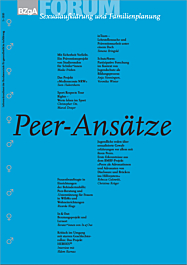


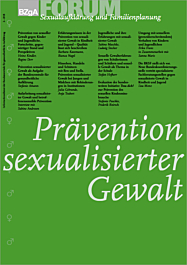

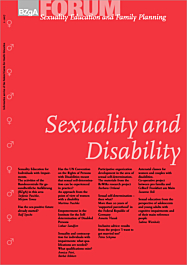
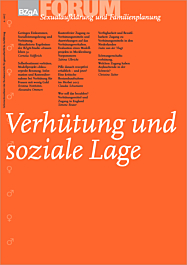
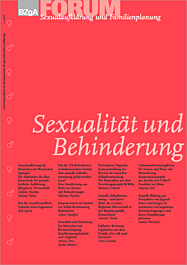
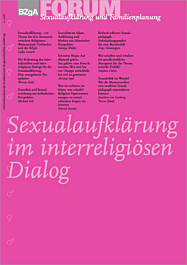
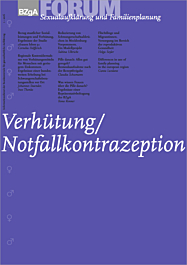
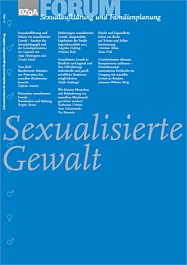
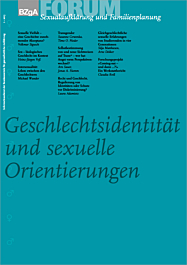



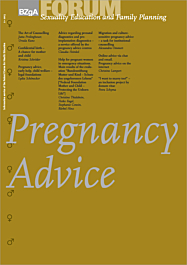
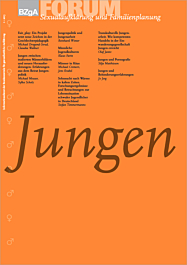

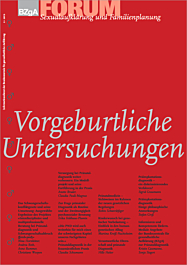
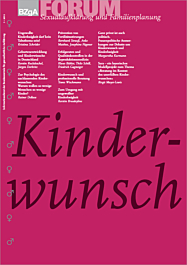
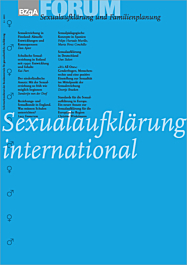


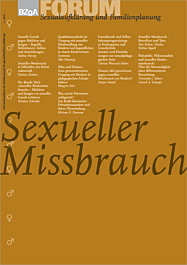
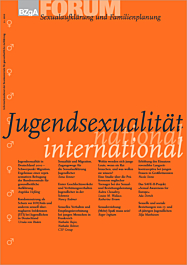
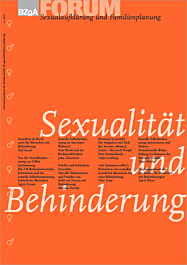
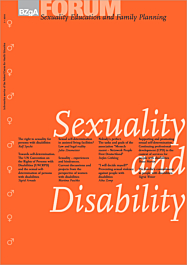
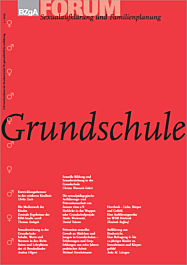
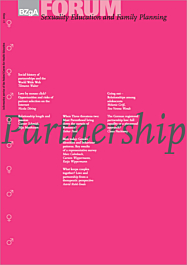
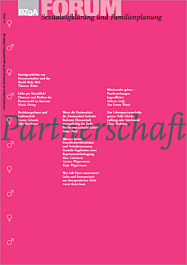
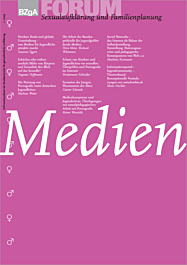





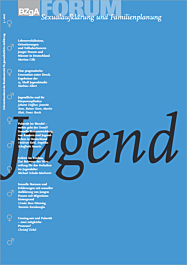
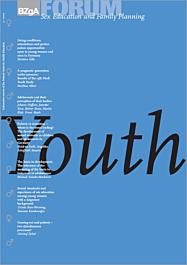

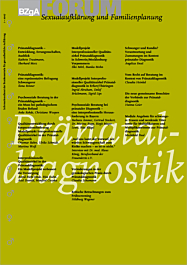

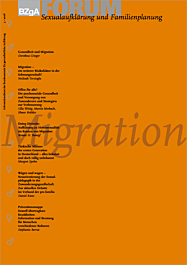
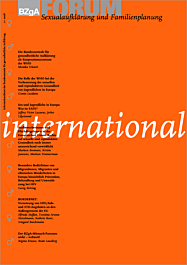

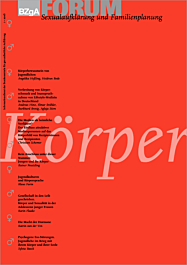




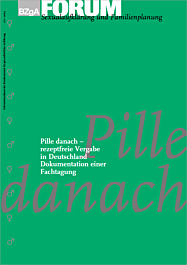
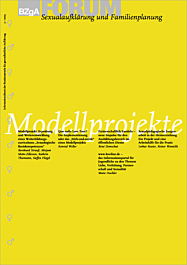
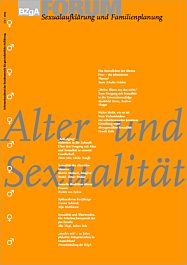
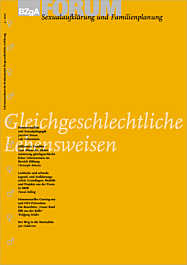
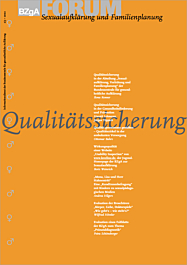
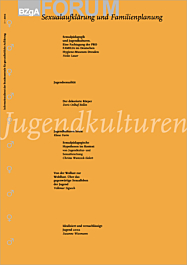
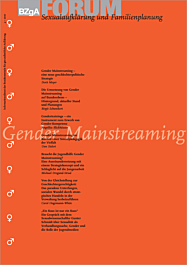
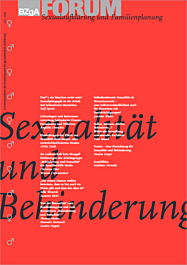

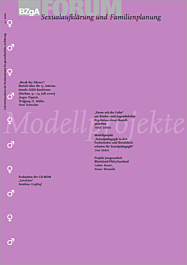

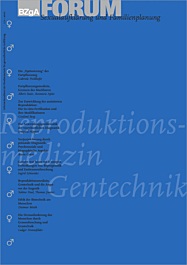
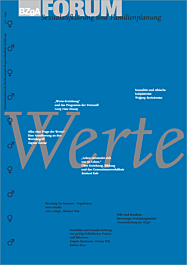
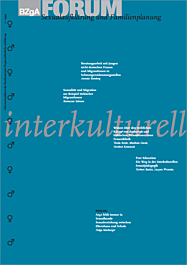
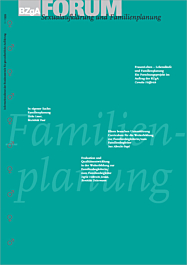
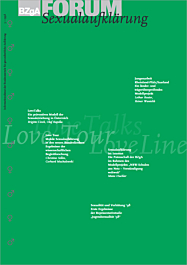
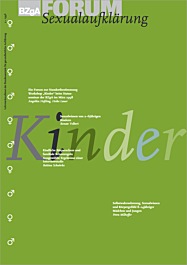
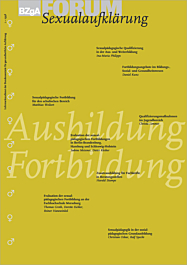
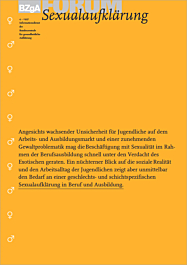

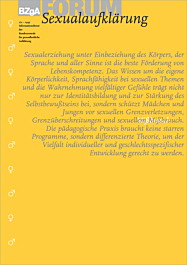




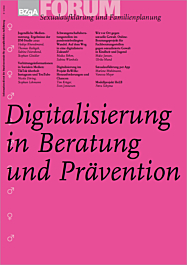

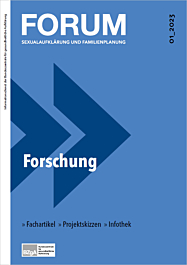

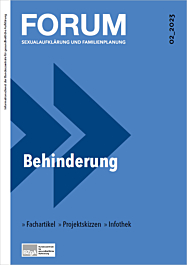

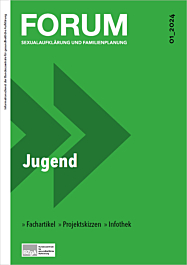
Es gibt weitere Materialien für das Thema "FORUM Sexualaufklärung und Familienplanung, Heft 2-2010: Youth Sexuality national/international, english version" in anderen Kategorien.
(!) Bei Klick auf den Button werden alle Materialien angezeigt.
 Bitte beachten!
Bitte beachten!
Weitere Informationen
Aktuelle Lieferzeiten
Aufgrund eines stark erhöhten Bestellaufkommens kann die übliche Lieferzeit von 5-7 Werktagen derzeit leider nicht gewährleistet werden. Bitte richten Sie sich auf eine Lieferzeit von ca. 7-10 Werktagen ein. Wir bitten freundlich um Verständnis.
Schulbestellungen in den Schulferien
In der Zeit der Schulferien kann keine Auslieferung an Schuladressen erfolgen.
Mehr InformationenCoronavirus & Corona-Schutzimpfung
Nützliche Infografiken, Merkblätter in Fremdsprachen oder Poster rund um die Impfung: Hier finden Sie leicht verständliche Informationen zum Coronavirus, fachlich gesichert und aktuell. Unsere Materialien beantworten die wichtigsten Fragen u.a. zur Schutzimpfung. Viele Inhalte sind in Leichter Sprache erhältlich.
Corona-Materialien herunterladen